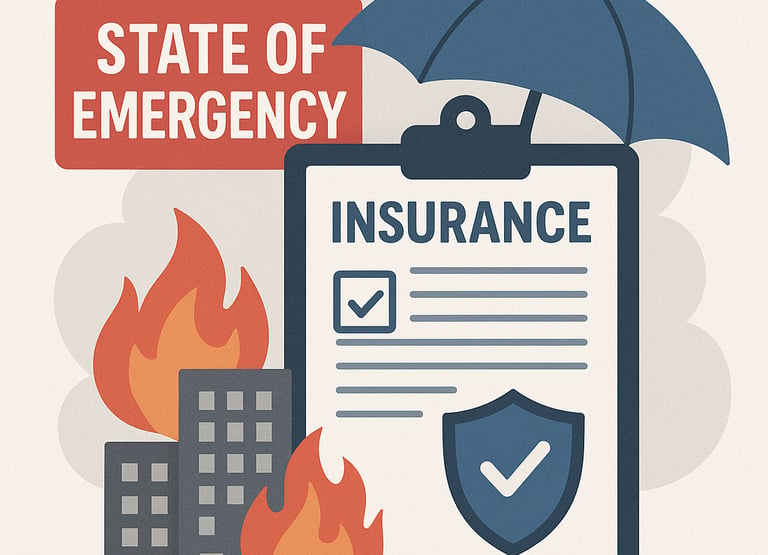STATE OF EMERGENCY & INSURANCE
ARTICLES
6/25/20252 min read


How the 1975 Emergency Shaped Insurance in India: Lessons in Business Interruption and Employee Protection
50 years ago, India witnessed one of the most dramatic political events in its independent history—the Emergency of 1975. Declared by then Prime Minister Indira Gandhi, the Emergency lasted for 21 months (June 25, 1975 – March 21, 1977), suspending civil liberties, censoring the press, and arresting thousands of political opponents.
While much has been written about the political and legal implications of that period, there’s another angle worth exploring—what can the Emergency teach us about insurance and risk preparedness? Especially when it comes to business continuity and employee protection.
Business Interruption in Times of Political Unrest
During the Emergency, several businesses across sectors faced severe operational challenges:
Arbitrary inspections and shutdowns
Censorship affecting media and publishing houses
Disrupted supply chains due to curfews and restricted movement
Fear-induced absenteeism and staff detentions
Back then, Business Interruption Insurance was either unheard of or extremely limited in scope. Today, businesses have the option to cover losses due to shutdowns, political violence, curfews, and unforeseen regulatory action.
Takeaway: The Emergency exposed how vulnerable businesses are to political risk. In today’s world, this underlines the importance of Loss of Profit (LOP) or Business Interruption covers that include non-physical damage triggers and even political risk endorsements.
Employee Wellbeing and Group Covers – A Forgotten Priority
Another underdiscussed impact of the Emergency was the human cost:
· Employees were arrested without trial
· Families of those jailed faced financial hardship
· Anxiety and fear disrupted normal life and work routines
In today’s terms, such risks would drive employers to consider Group Life Insurance, Group Mediclaim, or Personal Accident Policies for their staff.
A politically unstable period brings not just economic loss, but emotional and financial strain on employees and their families. Group insurance coverage helps companies retain goodwill, support their workforce, and ensure a safety net in turbulent times.
Lesson: Crises—whether political, health-related (like COVID-19), or natural—underscore the need to protect people, not just assets.
Building Resilience Through Insurance
The Emergency was a harsh reminder that external, uncontrollable events can deeply disrupt life and commerce. Today’s insurance industry is far more evolved, offering products that can cushion both businesses and individuals from such shocks.
Whether it's a lockdown, civil unrest, or any force majeure situation, the right insurance can make the difference between collapse and continuity.
Final thoughts:
As we mark 50 years since the Emergency, it's not just a moment to reflect on history—but also to ask:
“Is my business ready for the unexpected?”
“Are my employees protected if the system fails?”
Because while history may not repeat, risk always evolves—and insurance is one of the smartest tools we have to navigate it.
